
Star Trek is beloved like few other media properties, so it makes sense that from the start, the franchise has included tie-in comics to give fans even more stories from the Final Frontier. These comics helped build the Star Trek universe, offering fresh insights into classic characters and missions, and even continuing series after they left TV. While some of them have been rendered out of continuity by later TV shows, others were actually ahead of the curve, introducing concepts that are only now making it to the screen.
However, not all Star Trek comic runs were created equal. Some runs are masterpieces all fans of the franchise should seek out, while others aren't worth your time as anything more than curios. What makes it difficult for fans is how much the Star Trek license has bounced around from publisher to publisher, making it harder to identify what's what. Here are the ten best Star Trek runs so far – ranked by how essential they are to every Trekkie's collection.
10 Marvel Comics' Star Trek: The Motion Picture Line (1979-1981) 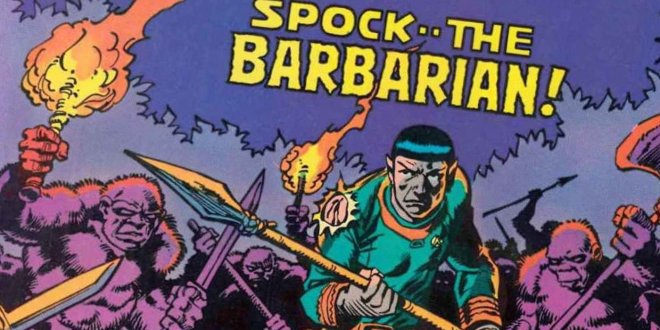 Shortly after Star Trek: The Motion Picture, Marvel obtained the rights to produce new comics based on the franchise. The first few issues adapted the movie’s story, but the remainder were all-new. Marvel’s Star Trek comic should have been successful; Marvel had caught lightning in a bottle with its Star Wars comic – so what was stopping it from doing the same with Star Trek?
Shortly after Star Trek: The Motion Picture, Marvel obtained the rights to produce new comics based on the franchise. The first few issues adapted the movie’s story, but the remainder were all-new. Marvel’s Star Trek comic should have been successful; Marvel had caught lightning in a bottle with its Star Wars comic – so what was stopping it from doing the same with Star Trek?
The answer lies in the license, which severely restricted what kinds of stories Marvel could tell. The license only allowed the publisher to use characters and concepts that were featured in Star Trek: The Motion Picture. That meant no Romulans, no Tholians, and zero drama. Marvel tried to do the best with what it was given, but it was simply not meant to be, and Marvel’s first foray into the Star Trek universe came to an end in 1981.
9 Star Trek Newspaper Strips (1979-1983) 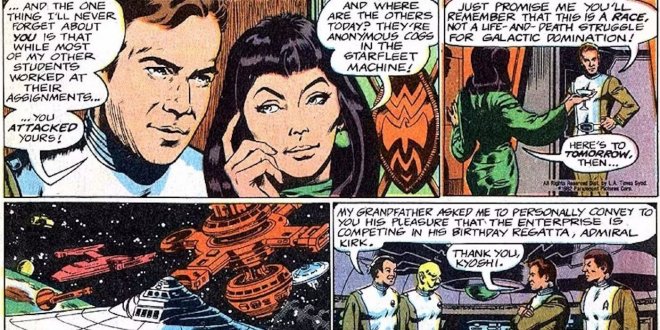 A true curiosity in the history of Star Trek comics, the syndicated newspaper strips are all but forgotten by fans today. Much like Marvel’s comics, the newspaper strips commenced shortly after Star Trek: The Motion Picture, and ran for a respectable four years, concluding after the release of The Wrath of Khan. There were two such strips, one that ran daily and another that ran in the Sunday editions. Syndicated by the Los Angeles Times, a number of comic professionals, such as Gerry Conway and Martin Pasko, worked on the strip.
A true curiosity in the history of Star Trek comics, the syndicated newspaper strips are all but forgotten by fans today. Much like Marvel’s comics, the newspaper strips commenced shortly after Star Trek: The Motion Picture, and ran for a respectable four years, concluding after the release of The Wrath of Khan. There were two such strips, one that ran daily and another that ran in the Sunday editions. Syndicated by the Los Angeles Times, a number of comic professionals, such as Gerry Conway and Martin Pasko, worked on the strip.
Today, however, these strips have receded into obscurity. There is one collected edition currently in print, collecting the first half of the strip’s run. It was published in 2012 with a follow-up volume, now out of print, a year later. The Star Trek newspaper strip remains largely ignored in the history of the franchise, making it a hidden gem for fans.
8 Malibu Comics' Star Trek: Deep Space Nine (1993-1995) 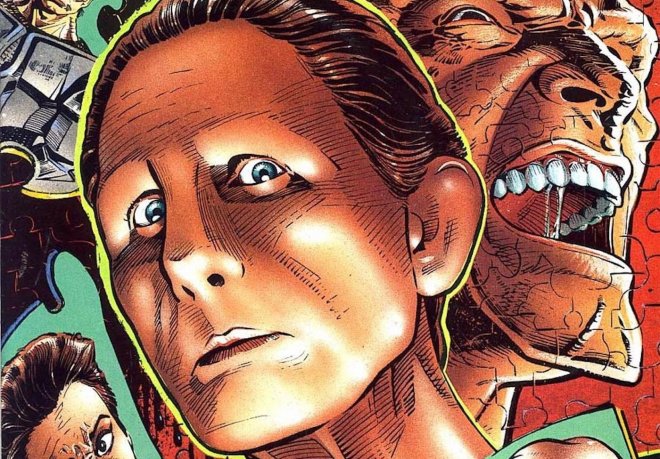 When Star Trek: Deep Space Nine premiered in 1993, Malibu Comics won the right to publish titles based on the series. This came as something of a shock to fans, as DC Comics had been publishing a series of highly successful Star Trek comics, and it was assumed the publisher would pick up the rights to Deep Space Nine as well. However, despite this surprise, Malibu’s Deep Space Nine series got off to a promising start; it was written by Mike W. Barr, who had penned many Star Trek stories at DC, and captured the tone and drama of the popular new series, as well as exploring new fan-favorite characters. The series ran for two years, ending in 1995. Malibu announced plans for a Star Trek: Voyager comic, but it never came to fruition, mainly because Marvel bought Malibu around the same time.
When Star Trek: Deep Space Nine premiered in 1993, Malibu Comics won the right to publish titles based on the series. This came as something of a shock to fans, as DC Comics had been publishing a series of highly successful Star Trek comics, and it was assumed the publisher would pick up the rights to Deep Space Nine as well. However, despite this surprise, Malibu’s Deep Space Nine series got off to a promising start; it was written by Mike W. Barr, who had penned many Star Trek stories at DC, and captured the tone and drama of the popular new series, as well as exploring new fan-favorite characters. The series ran for two years, ending in 1995. Malibu announced plans for a Star Trek: Voyager comic, but it never came to fruition, mainly because Marvel bought Malibu around the same time.
7 Gold Key Comics' Star Trek (1967-1979) 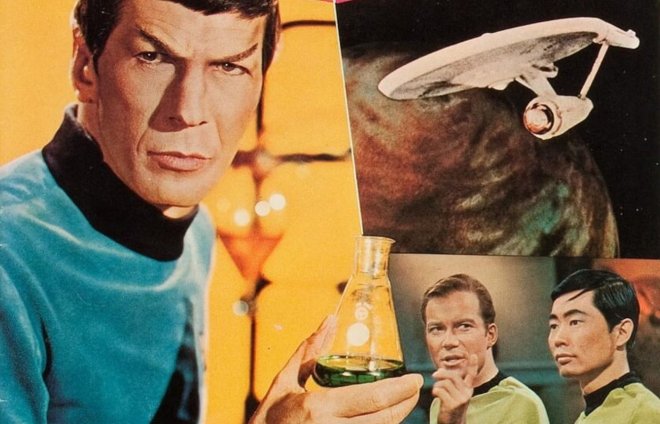 The first company to produce Star Trek comics, Gold Key’s first issue premiered roughly a year after the show, and the publisher held the rights for 12 years. The earliest Gold Key issues were notorious for their lack of faithfulness to the source material – characters looked different and acted different. These problems resolved themselves as the run went on, and in time it attracted top talent such as Len Wein and Arnold Drake. Gold Key’s run, despite its flaws, helped pave the way for Star Trek to thrive in comics. Gold Key’s Star Trek comic was no doubt helpful in helping keep the franchise alive during the 1970s.
The first company to produce Star Trek comics, Gold Key’s first issue premiered roughly a year after the show, and the publisher held the rights for 12 years. The earliest Gold Key issues were notorious for their lack of faithfulness to the source material – characters looked different and acted different. These problems resolved themselves as the run went on, and in time it attracted top talent such as Len Wein and Arnold Drake. Gold Key’s run, despite its flaws, helped pave the way for Star Trek to thrive in comics. Gold Key’s Star Trek comic was no doubt helpful in helping keep the franchise alive during the 1970s.
6 Marvel's Paramount Comics Imprint (1996-1998) 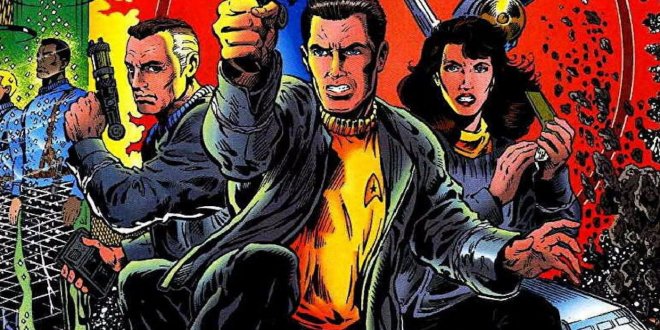 In 1996, Star Trek’s 30th anniversary, Marvel Comics obtained the license to produce a new line of comics based on the franchise. Unlike its first stab at Star Trek, which came with a restrictive license, Marvel’s second attempt was much more successful. Debuting with new Deep Space Nine and Voyager comics, Marvel’s 'Paramount Comics' imprint also featured quarterly titles focusing on the Original Series and Star Trek: The Next Generation.
In 1996, Star Trek’s 30th anniversary, Marvel Comics obtained the license to produce a new line of comics based on the franchise. Unlike its first stab at Star Trek, which came with a restrictive license, Marvel’s second attempt was much more successful. Debuting with new Deep Space Nine and Voyager comics, Marvel’s 'Paramount Comics' imprint also featured quarterly titles focusing on the Original Series and Star Trek: The Next Generation.
What separated Marvel’s second attempt from its previous books was the debut of original titles not based on an existing show. The first was Star Trek: The Early Voyages, which featured the adventures of Captain Pike as well as a Starfleet Academy title; these books mixed old characters with new ones. In some ways, Marvel was ahead of the curve, anticipating future live action shows. In 2023, Pike has now appeared in Strange New Worlds, and a live-action Starfleet Academy show is in the works.






